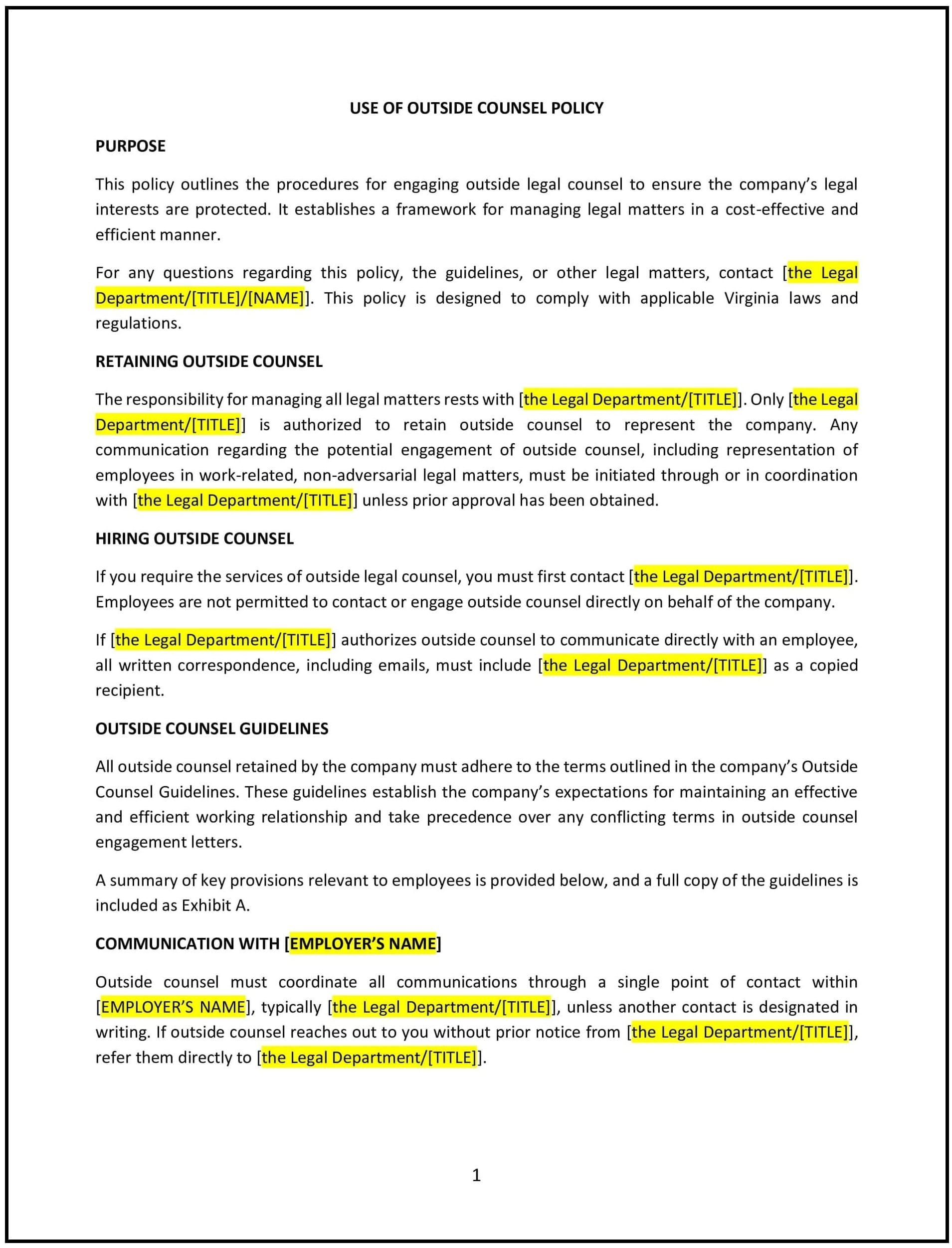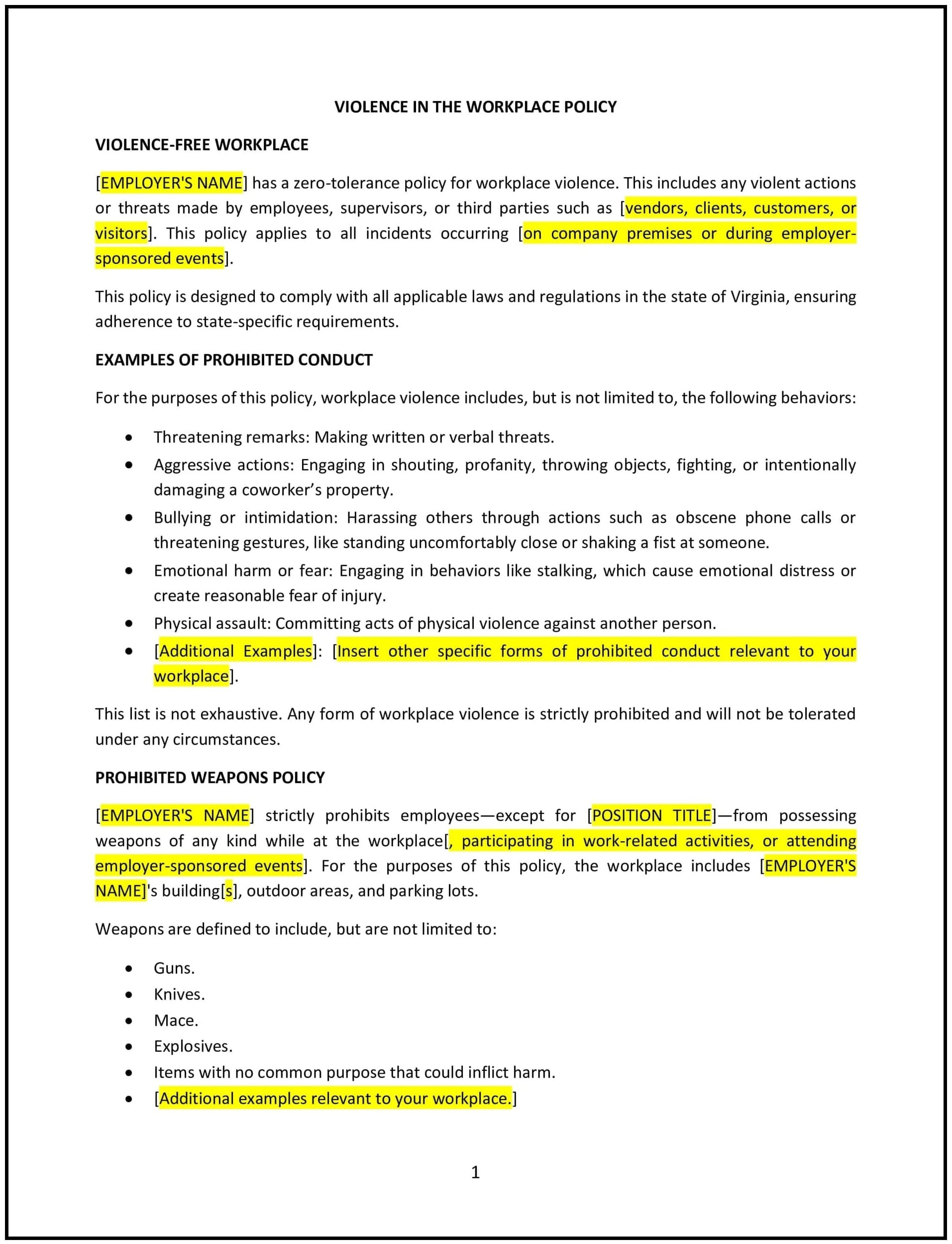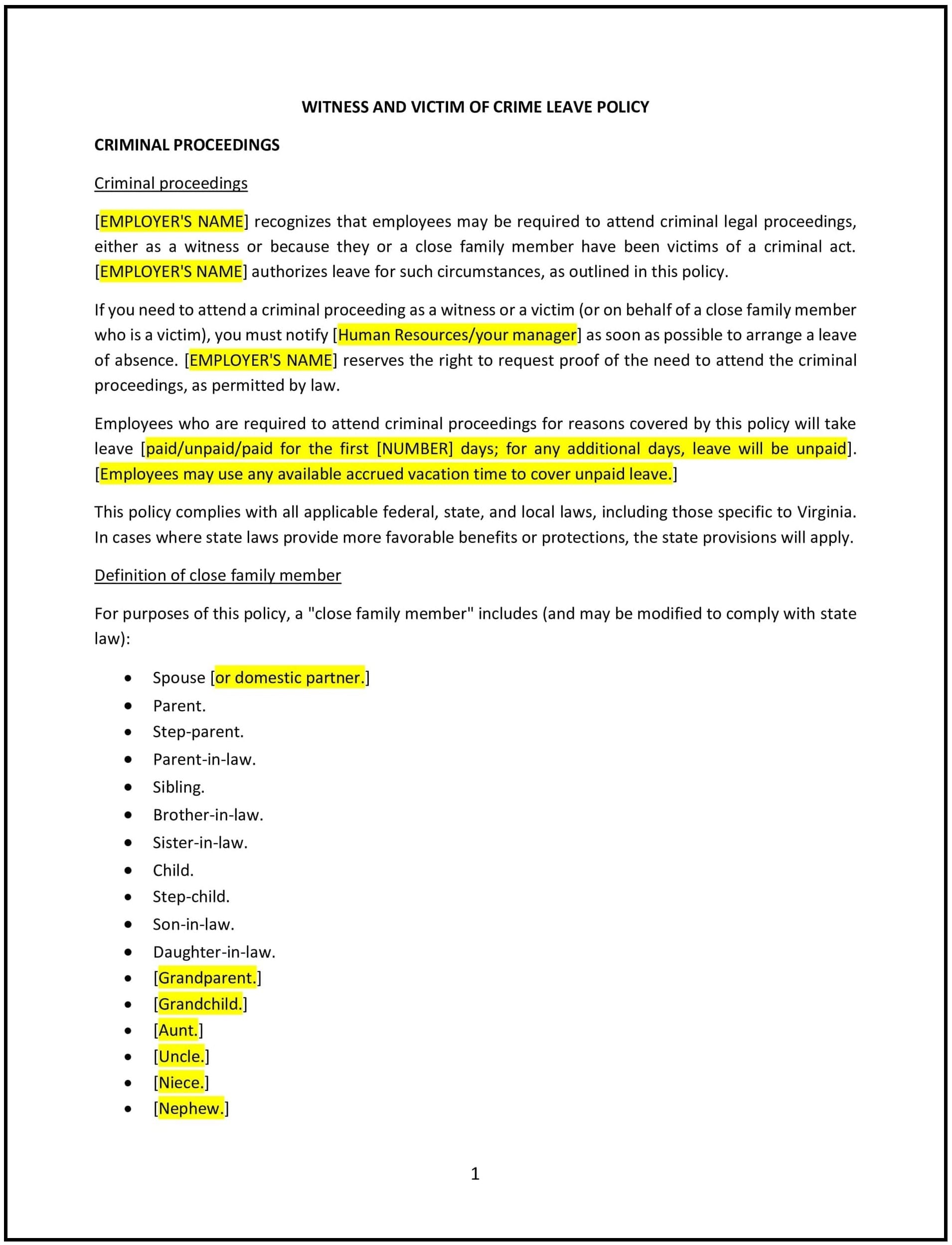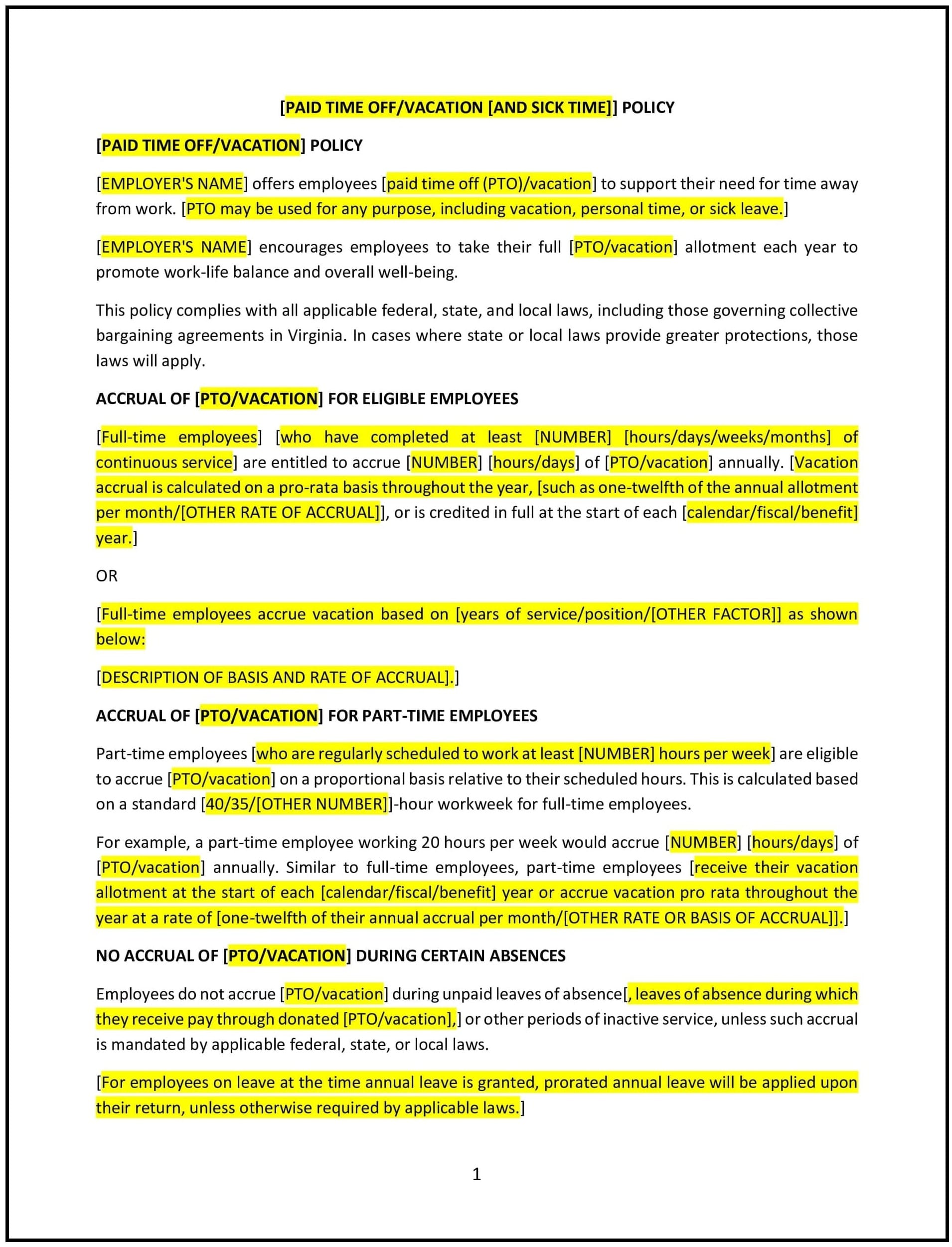Use of outside counsel policy (Virginia): Free template
Got contracts to review? While you're here for policies, let Cobrief make contract review effortless—start your free review now.

Customize this template for free
This use of outside counsel policy is designed to help Virginia businesses manage the selection, engagement, and oversight of external legal service providers. The policy outlines the process for retaining outside counsel, including criteria for selection, scope of engagement, and communication expectations, ensuring that legal services align with the organization’s needs and budget.
By implementing this policy, businesses can maintain control over legal costs, ensure consistent legal representation, and manage relationships with outside counsel effectively to minimize risks and maximize legal support.
How to use this use of outside counsel policy (Virginia)
- Define criteria for selecting outside counsel: The policy should set forth specific criteria for choosing outside counsel, including expertise, experience, cost, and availability. Ensure the selection process aligns with the company’s legal needs and budget.
- Set engagement parameters: Outline the scope of engagement with outside counsel, specifying the types of legal matters they will handle and any limitations on their authority.
- Establish communication expectations: The policy should define how outside counsel will communicate with the business, including regular updates, escalation procedures, and points of contact.
- Detail billing practices: Provide guidelines for how outside counsel should submit invoices, including hourly rates, billing frequency, and any caps or budget limits. Specify expectations for detailed billing, itemizing time spent and costs incurred.
- Monitor performance and costs: Establish mechanisms for regularly evaluating the performance of outside counsel, tracking legal expenses, and ensuring that services remain within budget and meet quality expectations.
- Implement approval processes: Define approval procedures for hiring outside counsel, including who within the business is authorized to engage external legal services and how the approval process should be documented.
- Require confidentiality and compliance: Ensure that outside counsel adhere to the business’s confidentiality standards and comply with relevant laws and regulations, including data privacy laws and conflicts of interest.
- Review and update regularly: Periodically review and update the policy to ensure it reflects changes in business needs, legal market conditions, and best practices in legal management.
Benefits of using this use of outside counsel policy (Virginia)
This policy offers several benefits for Virginia businesses:
- Controls legal costs: By setting clear billing practices and approval processes, the policy helps businesses manage and contain legal expenses.
- Ensures quality legal support: The policy ensures that outside counsel possess the necessary expertise and are properly engaged to handle the business’s legal needs, improving the overall quality of legal services.
- Promotes consistent legal strategy: Clear guidelines for communication and scope of engagement help ensure that outside counsel are aligned with the business’s legal objectives and strategy.
- Enhances compliance: The policy reinforces the need for confidentiality and regulatory compliance, reducing the risk of legal missteps.
- Improves vendor management: Regular performance evaluations and cost tracking help maintain effective relationships with outside counsel and ensure value for money.
- Reduces legal risks: By using a structured approach to selecting and managing outside counsel, businesses can avoid hiring unqualified or inappropriate legal providers, reducing the risk of poor advice or legal issues.
Tips for using this use of outside counsel policy (Virginia)
- Communicate the policy clearly: Ensure that all relevant employees understand the policy and know the procedures for engaging outside counsel. Include it in the employee handbook and discuss it during training.
- Set realistic expectations: Be clear about the level of service and cost that can be expected from outside counsel, and monitor their performance to ensure these expectations are met.
- Maintain accurate records: Keep detailed records of all communications, engagements, and invoices from outside counsel to ensure transparency and accountability.
- Review the policy periodically: Regularly review the policy to ensure it reflects current legal market conditions, business needs, and best practices for managing legal services.
- Negotiate rates and terms: Before engaging outside counsel, negotiate favorable rates and billing terms to ensure that the business receives high-quality legal services at a competitive price.

Outlines how to prevent, report, and respond to workplace violence under Virginia guidelines.

Provides leave guidance for employees involved in legal matters, aligned with Virginia employee protections.

Explains how vacation time is earned, requested, and approved according to Virginia employment standards.